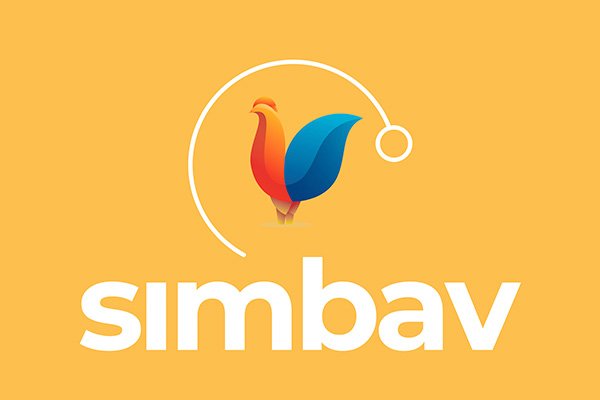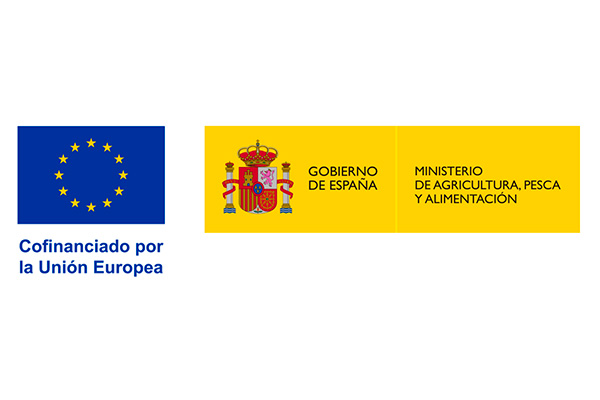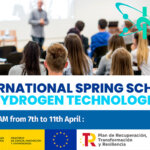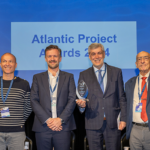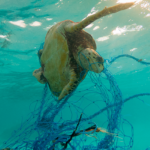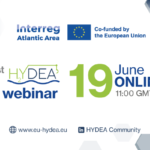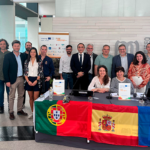With a budget of €597,650.57 and a grant of €595,550.57, 80% co-financed by FEADER funds, the SIMBAV project begins its journey, a supra-regional operational group that promotes the modernisation and improvement of the competitiveness of the poultry sector through a strategy based on the efficient management of its resources thanks to the use of digitalization tools that allow the control of energy efficiency and animal welfare, the achievement of circular economy and energy symbiosis actions that will help reduce energy and water consumption, and the energy use of bio-waste generated on the farm itself and on nearby farms.
This strategy focuses on several factors, the first of which is the valorisation of manure generated in poultry farms, such as chicken manure, and agricultural waste, such as vine pruning remains, for energy use as biofuels and biofertilisers, which allows the recovery of nutrients through their application in crops. On the other hand, the project aims to achieve control of production processes through their digitalization with the aim of improving animal welfare conditions and consumption linked to these conditions, to implement an intelligent management system that facilitates decision-making on poultry farms. Finally, circular economy actions will be carried out to reduce the environmental impact associated with production by reducing the demand for resources linked to energy and water consumption. The complete strategy will be evaluated using the Life Cycle Analysis methodology, which will allow the environmental performance of the proposed solutions to be quantified objectively, and from a technical-economic point of view, which will allow the viability of their introduction into the sector’s activities to be determined.
To achieve these ambitious objectives, a multidisciplinary team has been set up, coordinated by the Galician University Business Foundation (FEUGA), in which we participate as partners and technical coordinators, in addition to the Consejo Superior de Investigaciones Científicas – Centro de Edafología y Biología Aplicada del Segura (CEBAS-CSIC), the companies Demaux Manufacture S.L., Granja José Antonio García, Avícola El Charcón S.L. and Bodega Hermanos del Villar (Oro de Castilla), and the Asociación Castellano-Leonesa de Empresas de Avicultura (ASCLEA). In addition, it has the collaboration of the University of Vigo through the Energy Technology Research Group – GTE.
The project will last more than 3 years and will begin with the digitalization of the farms under study with the installation of sensors and the implementation of predictive algorithms that allow the early detection of diseases to achieve a reduction in bird mortality. In addition, the energy and water consumption of the farms under study will be addressed. On the one hand, a drying and combustion/gasification system for chicken manure and turkey manure mixed with vine pruning will be installed to achieve energy use of this waste, reducing the farms’ energy needs. On the other hand, measures will be developed to reduce water consumption from the network, acting on the activities that demand a greater volume of this resource. With all this, it will be possible to evaluate the percentage of savings in the farms’ overall energy costs that would be achieved with the proposed solution. By-products will be obtained from the energy recovery developed in the project, in which their composition and their capacity to provide nutrients to the soil will be identified, thus reducing the quantities of inorganic fertilizer to be used on crops.
Finally, an environmental and technical-economic assessment of the efficient resource management strategy proposed in the project will be carried out, providing producers and other interested parties, such as public administration or members of the value chain, with information about the feasibility and potential benefits of introducing the solutions proposed in the project.
With the successful development of the SIMBAV project, poultry farms will be able to optimise farm productivity through greater process control, improved animal welfare, the use of their resources and increased energy efficiency, which will contribute to the improvement of the sector in terms of innovation, economic competitiveness and environmental impact.
The SIMBAV project is part of the Strategic Plan of the Common Agricultural Policy (PEPAC) 2023-2027, funded 80% by the European Agricultural Fund for Rural Development (EAFRD) of the European Union and 20% by the Ministry of Agriculture, Fisheries and Food (MAPA). The Directorate General for Rural Development, Innovation and Agri-Food Training (DGDRIFA) is the authority in charge of implementing these grants. Total project budget: €597,650.57. Total subsidy: €595,550.57
EnergyLab is the entity responsible for this content.




